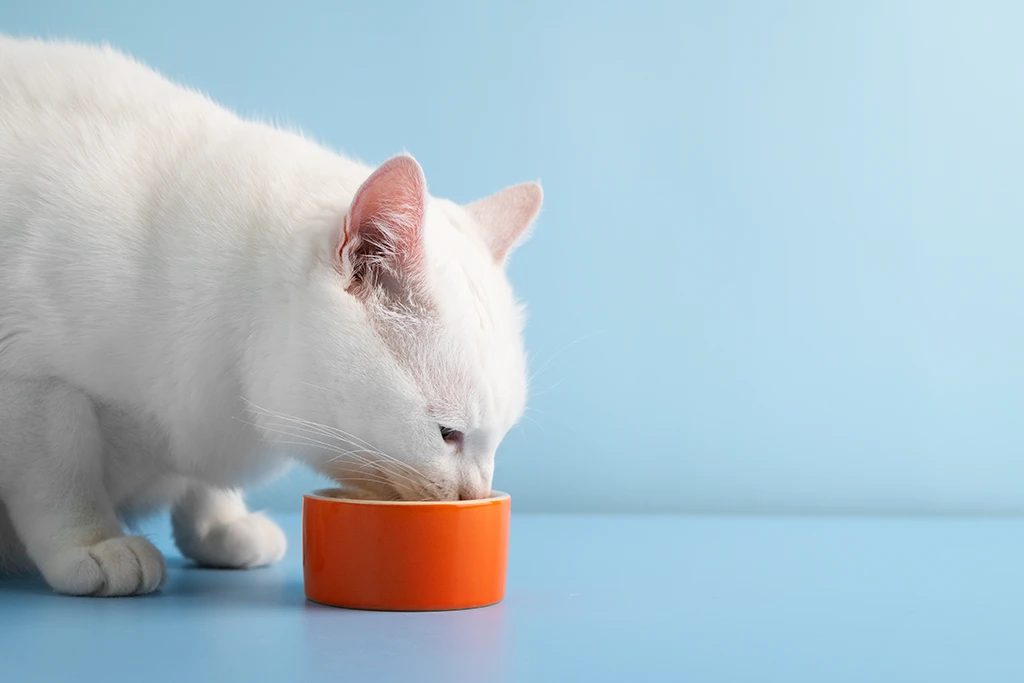

As feline companions grow older, they encounter numerous new obstacles, such as achy joints or elevated anxiety. It’s tough to see a once-energetic companion slow down. But there’s good news! CBD, a natural compound found in hemp, is gaining popularity as a potential way to support aging pets’ comfort and overall well-being.
This guide explores how CBD benefits aging pets, including appropriate dosages, guidance on choosing the right products, possible side effects, and examples of how CBD has helped real pets do well as they get older.
Table of Contents
ToggleCBD is short for cannabidiol. Unlike THC, it won’t cause any “high” feelings. Rather, it interacts peacefully with the endocannabinoid system (ECS) of pets, a sophisticated network controlling many body processes. Think of the ECS as the body’s internal balancing act, keeping everything in harmony.

CBD offers a variety of potential benefits for aging pets. Providing their bodies with a little bit of additional support to help them negotiate the problems that come with aging is the same thing. Some of the ways how CBD helps are listed below.
Just like humans, pets experience joint pain and stiffness as they get older. One typical cause is arthritis, which makes those once-pleasurable runs and jumps a little more difficult. CBD’s anti-inflammatory properties help soothe those achy joints and improve mobility, (Corsato Alvarenga, I., et al., 2023). Imagine an animal friend running and wagging its tail once more.
Aging brings about changes that make pets feel anxious or stressed. Perhaps it’s a decline in their senses or changes in their routine or environment. CBD helps ease those anxieties and promotes a sense of calm. As one study showed, “A single dose of CBD-free distillate can significantly reduce canine stress during separation and car travel, with varying effects depending on the measure and test,” (Hunt, A., et al., 2023) It’s as if it provides them with an additional layer of comfort, letting them unwind and savor their golden years.
Senior pets sometimes lose interest in food, which is a real worry for pet parents. This loss of appetite leads to weight loss and other health issues. CBD aids in the stimulation of their appetite and the encouragement of eating, thereby ensuring that they receive the necessary nutrients to maintain their health and strength.
As pets age, their sleep patterns change, leading to restless nights. Their energy levels and general well-being are impacted by difficulty falling or staying asleep. CBD promotes relaxation and deeper sleep, helping them wake up refreshed and ready for the day. “Cannabinoid therapies show promising potential for treating sleep disorders, but more large-scale, rigorous trials are needed to confirm their safety and efficacy,” (Suraev, A., et al., 2020).
While research is ongoing, CBD also shows promise in managing other age-related issues like seizures and nausea. It is also important to remember that every pet is unique, and what works for one does not necessarily work for another. With meticulous observation and direction from the pet’s veterinarian, CBD serves as a beneficial resource to enhance a pet’s health and well-being during their senior years.
Think a senior pet needs some extra comfort? Start a pet’s CBD journey here.
When it comes to CBD for aging pets, finding the right dosage is key. Neither excessive nor insufficient, but precisely adequate. A general starting point is 0.2mg of CBD per pound of body weight, but always start low and gradually increase the dosage as needed.
To get the desired effect, start with a low dose and gradually increase it. Factors like the pet’s age, size, health condition, and individual sensitivity all influence the ideal dosage.
CBD comes in various forms, each with its own method of administration:
CBD Oil: This is a popular choice for its flexibility. Put it directly in the pet’s mouth or combine it with their food.
CBD Treats: These are a tasty and convenient option, especially for picky eaters.
CBD Topicals: Balms and creams are applied directly to the skin for localized relief.
Before starting a pet on CBD, it’s always best to consult a pet’s attending veterinarian. They help determine the appropriate dosage and product type based on the pet’s individual needs.
Although CBD is usually safe for pets, one should be aware of possible adverse effects. Even though these are typically brief and mild, it’s better to be ready. Some common side effects include:
Drowsiness: a pet is more sleepy than usual.
Dry Mouth: Make sure they have plenty of fresh water available.
Lowered Blood Pressure: This is rare but something to keep in mind.
Digestive Upset: Changes in appetite or stool consistency occur.
Do not be concerned if a pet experiences any of these adverse effects. These are usually managed by adjusting the dosage or providing supportive care. For example, if a pet seems drowsy, reduce the amount of CBD given to them. Always monitor the pet closely and consult a veterinarian if there are any concerns.
Not all CBD products are created equal. When selecting CBD for a senior pet, it’s critical to choose high-quality products from respected brands. Here are some things to look for.

Like a quality assurance check, third-party testing guarantees that the product is free of dangerous toxins and contains what it promises to. Look for brands that readily provide Certificates of Analysis (COAs) from independent labs. These COAs provide detailed information about the product’s cannabinoid content, purity, and safety.
CBD products come in different forms, and understanding the differences helps pet parents choose the best option for their pet. Full-spectrum CBD contains a wider range of beneficial compounds found naturally in the hemp plant, including cannabinoids, terpenes, and flavonoids. This creates what’s known as the “entourage effect,” where these compounds work together synergistically for enhanced benefits.
Broad-spectrum CBD, on the other hand, is THC-free but still contains other beneficial compounds. This is a good option for pet owners who want to avoid THC altogether, while still providing their pets with the potential benefits of CBD.
Just like choosing healthy and natural foods for a pet, natural ingredients in CBD products are also a priority. Look for products made with high-quality hemp sourced from reputable growers. Avoid products with artificial additives, flavorings, or preservatives. It’s all about providing pets with the purest and most beneficial CBD possible.
Imagine trying to bake a cake without knowing the exact measurements of the ingredients. It is pretty tricky, right? The same goes for CBD dosage. Choose products with clear dosage information on the packaging. This should include the amount of CBD per serving, making it easy to administer the correct amount to pets.
By choosing wisely and considering these factors, pet parents ensure their pets are getting the best possible CBD product to support their health and well-being in their golden years. It’s like giving them a little extra love and care, helping them enjoy their senior years to the fullest.
CBD offers a natural and potentially effective way to support aging pets’ comfort and well-being. By understanding how it works, choosing the right products, and working closely with a veterinarian, pet parents help their furry friends enjoy their golden years to the fullest.
Remember, every pet is unique, and finding the right CBD regimen takes some time and patience. But with careful observation and lots of love, pet parents help their aging companion live a happier, healthier life.
References

Table of Contents
Toggle